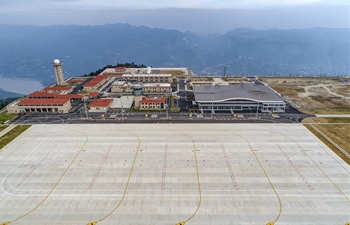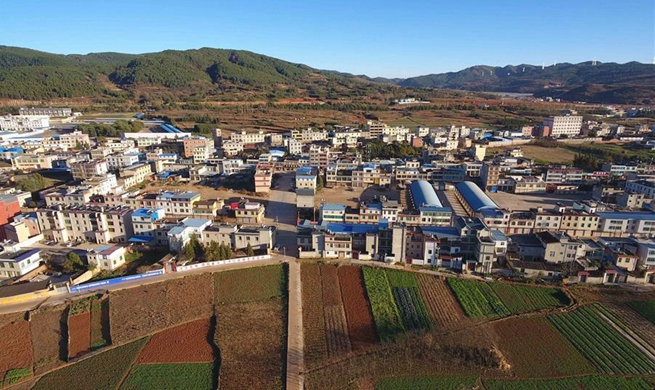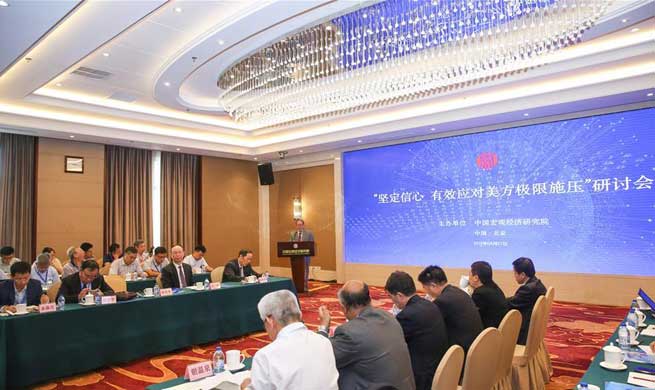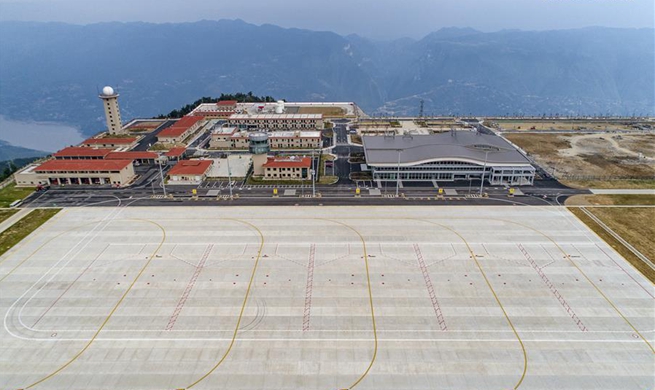ANKARA, Aug. 8 (Xinhua) -- Turkey has downplayed its exclusion from the U.S.-led stealth fighter jet F-35 program over its purchase of Russian S-400 missile system, but Turkish manufacturers who are active contributors will inevitably suffer, experts said.
Ankara's recent acquisitions of the Russian missile system caused U.S. President Donald Trump to suspend the sale of 100 F-35 jets to Turkey, as Washington claimed the Russian system could compromise the jet's stealth technology.
The decision also ended the Turkish defense industry's decade-long link to the project in which eight Turkish firms have been involved in producing the advanced fighter jets.
As joint partners in the 400-billion-U.S.-dollar F-35 project, Turkish firms were set to earn around 10 billion dollars, producing around 900 parts for the aircraft, including critical components such as landing gear, cockpit and fuselage parts.
"It's definitely a blow to the Turkish companies involved in the project and the defense industry in general. There will be economic repercussions," Ozgur Eksi, an expert on defense and armaments issues, told Xinhua.
"There will also be sanctions for the Turkish companies which will not be allowed to sell the technology that they have acquired in the F-35 to a third party," said Eksi, who is the editor-in-chief of the defense industry magazine C4 Defense.
The development of an indigenous defense industry, which now boasts some of the world's fastest-growing companies, is a priority for Turkish President Recep Tayyip Erdogan.
The president also said Turkey was irreplaceable in the jet's production, calling on Washington to reverse its decision.
However, following Turkey's removal, or in official terms its "suspension," from of the project last month, Lockheed Martin, manufacturer of the F-35, confirmed that it was on track to meet the Pentagon's deadline without the participation of Turkish companies.
Under the F-35 program, Turkey was to be one of the regional maintenance hubs for the jet, a role worth hundreds of millions of dollars for Turkish companies.
Ismail Demir, head of Turkey's defense industry directorate, acknowledged that the U.S. decision would be a setback, but pointed out that the "losses would be temporary" as the national defense industry would emerge stronger in the long-run.
Ankara was counting on its experience in the F-35 program to develop its own fifth generation fighter jet, which is still at its initial stages.
Turkish Aerospace Industries (TAI), one of the Turkish firms involved in the F-35 project, displayed an early pre-production model of its twin-engine TF-X fighter at this year's Paris Air Show.
Temel Kotil, CEO of TAI, seemed confident that the TF-X will enter serial production over the coming decade, expecting 2028 as the year for its entry in service.
"Turkish Aerospace has enough strength to build this fighter," Kotil was quoted by the local press as saying.
But analysts said this is still a very early stage for the future Turkish jet, a project which would also suffer from the F-35 setback without the necessary know-how.
"Turkey has learned a lot in the F-35 project for more than a decade but it has not the capability of building and producing a fighter plane on a large scale," argued Eksi.
He pointed to the brain drain for the industry as young and skilled workers have been employed abroad with higher salaries and better conditions.
In July, Russia's leading defense company suggested the possibility of selling its latest stealth fighter, the SU-57, as an alternative to the F-35.
However, any such deal may offer limited advantages to Turkish defense companies as Moscow is generally reluctant to transfer technology.
"The Turkish government has to be realistic in its ambitions and arms procurements," a Turkish defense analyst said on condition of anonymity.
"For the moment there is no real alternative to the F-35 technology. We all have to be realistic and look toward the future with more rational options," said the source, referring to the enormous cost of producing a domestic fighter jet in an economically difficulty environment.
Turkey's economy is recovering from a currency meltdown last year which led to a recession following a diplomatic spat with Washington over Turkey's detention of a U.S. pastor.













